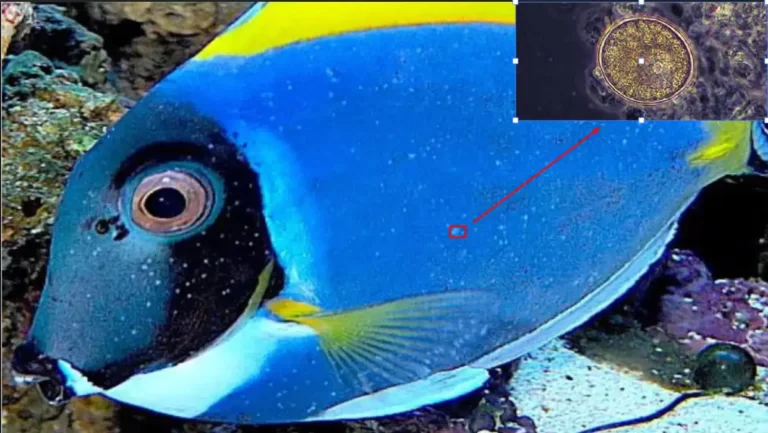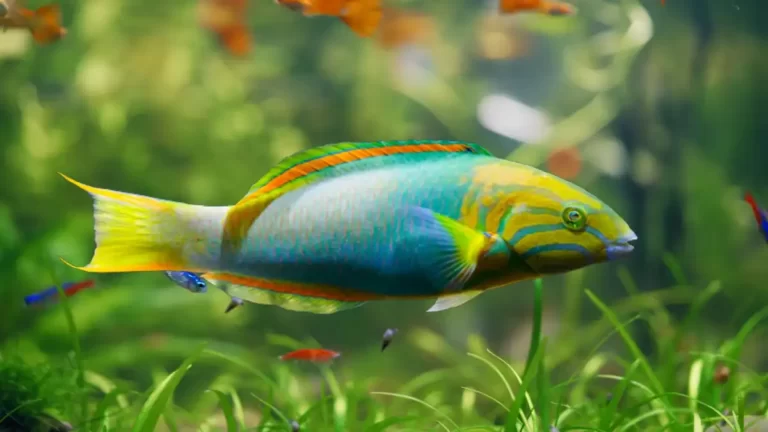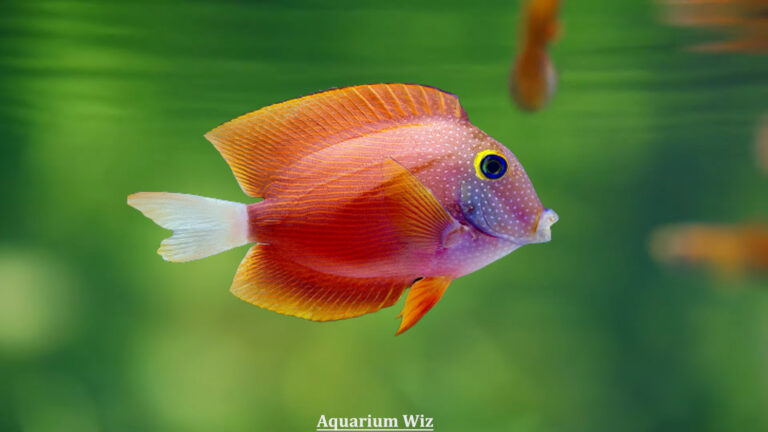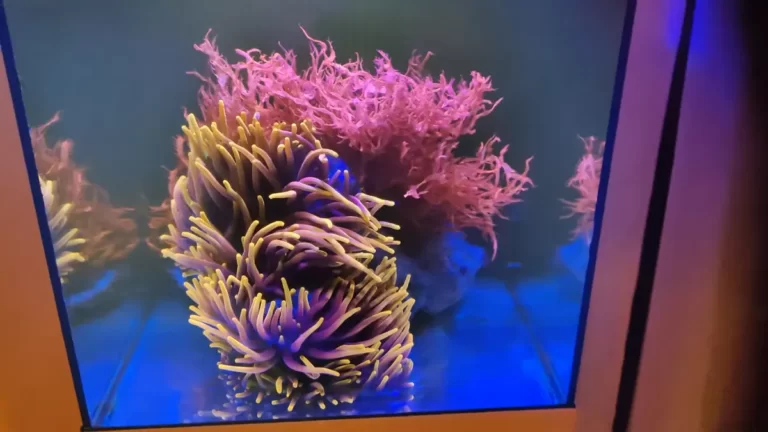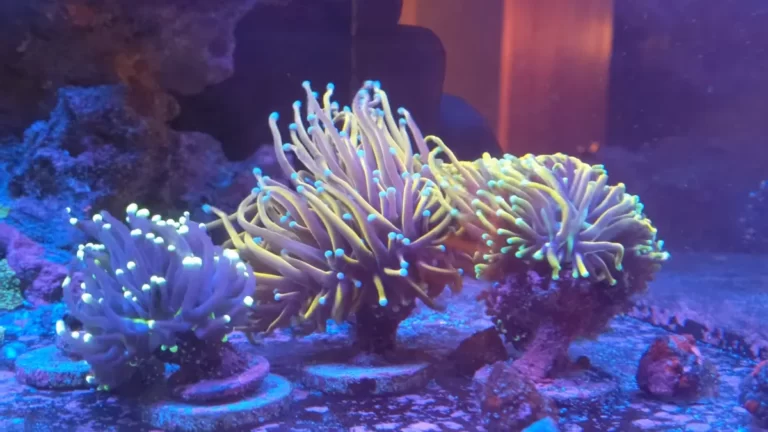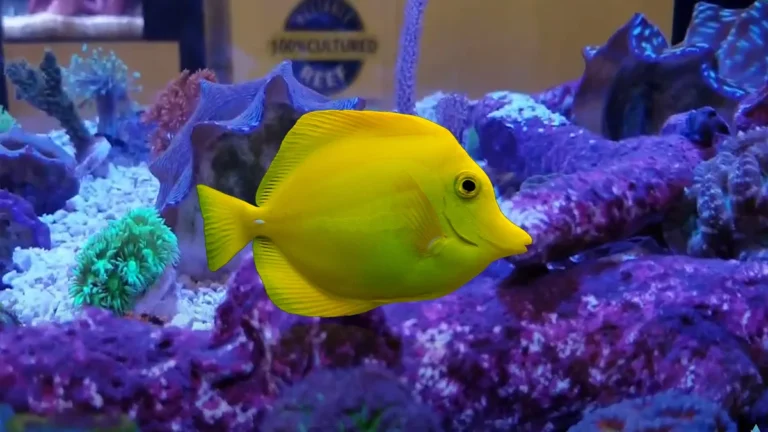Why Is My Torch Coral Closing Up? Common Causes and Solutions
Comprehending the ramifications of torch coral closure holds paramount importance for aquarium custodians, pivotal in preserving the aquarium’s holistic well-being. When a torch coral shuts its polyps, it potentially unveils underlying aquarium issues necessitating prompt resolution. Furthermore, a contracted torch coral might endure stress, leading to potential demise if left unremedied.
Key Takeaways
- Proper identification of the cause of torch coral closing up is crucial in addressing the issue.
- Torch coral closing up can indicate an underlying issue in the aquarium that needs to be addressed.
- Preventative measures and proper treatment can ensure the longevity of the aquarium and the health of the coral inhabitants.
By adopting proactive measures and effectively addressing torch coral closures, aquarium owners proffer enduring vitality to their aquatic ecosystems and the well-being of their coral denizens.
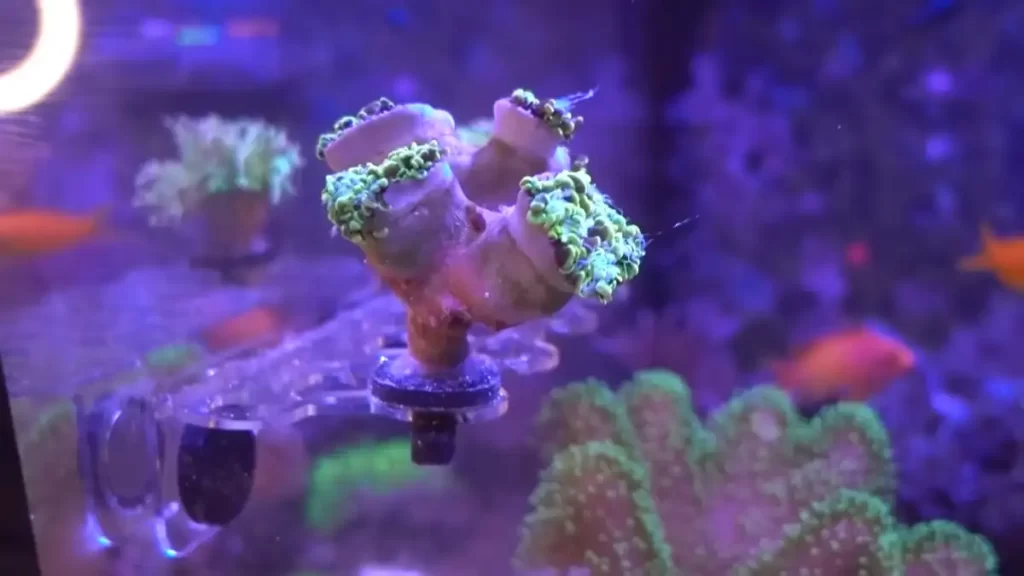
Identifying Torch Coral Closing Up
Torch corals are known for their long, swaying tentacles and vibrant colors, making them a popular addition to many reef aquariums. However, if you notice your torch coral closing up, it could be a sign of a problem. Here are a few ways to identify if your torch coral is closing up:
- Tentacles Retracted: If your torch coral’s tentacles are no longer extended, it may be closing up. Normally, the tentacles should be long and flowing, but if they are withdrawn, it could be a sign of stress or illness.
- Color Changes: A healthy torch coral should have bright, vibrant colors. If you notice the colors fading or becoming dull, it could be a sign of trouble.
- Slimy or Brown: If the coral is turning slimy or brown, it could be a sign of a bacterial or fungal infection. This can cause the coral to close up as it tries to protect itself from further damage.
- Lack of Movement: Torch corals should sway gently in the water, but if they are not moving at all, it could be a sign of a problem.
If you notice any of these signs, it’s important to take action to address the issue.
Read More: Holy Grail Torch Coral: The Ultimate Guide
Common Causes of Torch Coral Closing Up
Torch corals are beautiful and fascinating creatures that can add a lot of life and color to any aquarium. However, sometimes they can close up and stop extending their tentacles, which can be a sign of stress or illness. In this section, we will explore some of the most common causes of torch coral closing up and what you can do to address them.
Water Quality Issues
One of the most common causes of torch coral closing up is poor water quality. Torch corals are sensitive to changes in pH, salinity, and temperature, so it’s important to keep these parameters stable and within the appropriate range. Here are some specific water quality issues that can cause torch coral to close up:
- High levels of nitrates and phosphates: These nutrients can encourage the growth of algae, which can compete with the torch coral for resources and cause it to close up.
- Low levels of calcium and magnesium: These minerals are essential for the growth and health of the torch coral’s skeleton. If they are lacking, the coral may close up or even die.
- High or low pH: Torch corals prefer a pH between 8.0 and 8.4. If the pH is too high or too low, the coral may become stressed and close up.
Inadequate Lighting
Another common cause of torch coral closing up is inadequate lighting. Torch corals require moderate to high levels of light to thrive, so if they are not getting enough light, they may close up. Here are some specific lighting issues that can cause torch coral to close up:
- Too little light: If the torch coral is not getting enough light, it may close up and stop extending its tentacles. This can be caused by placing the coral in a shaded area of the aquarium or using a light that is not strong enough.
- Too much light: On the other hand, if the torch coral is getting too much light, it may become stressed and close up. This can be caused by placing the coral too close to the light source or using a light that is too strong.
Incorrect Water Flow
Finally, incorrect water flow can also cause torch coral to close up. Torch corals require moderate water flow to keep their tentacles extended and to capture food particles. Here are some specific water flow issues that can cause torch coral to close up:
- Too little water flow: If the water flow is too low, the torch coral may not be able to capture enough food particles and may close up.
- Too much water flow: On the other hand, if the water flow is too strong, the torch coral may become stressed and close up. This can be caused by placing the coral too close to a powerhead or using a powerhead that is too strong.
Impact of Torch Coral Closing Up
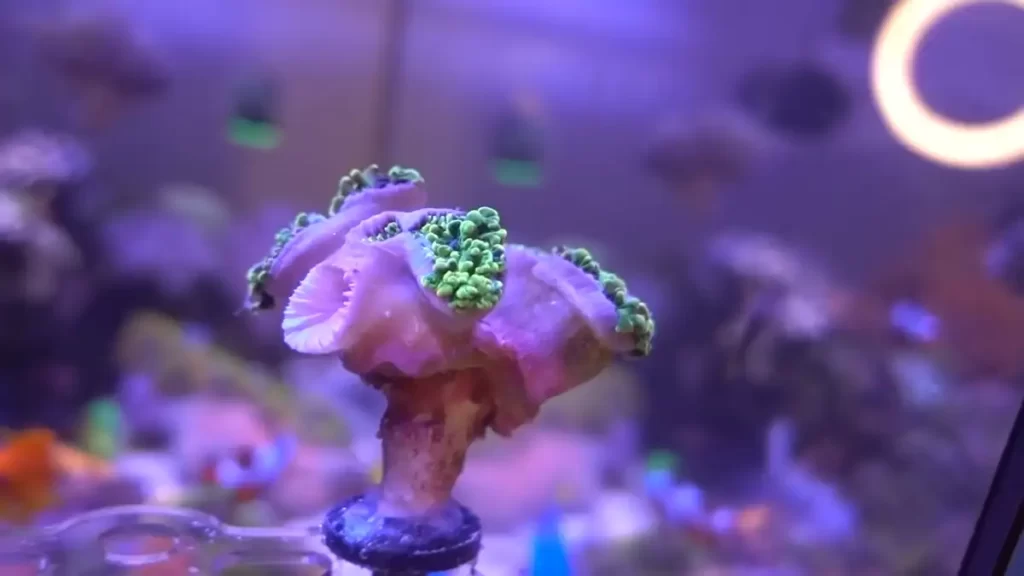
When a torch coral closes up, it can be an indication that something is wrong. The coral may be stressed, sick, or dying. It is important to determine the cause of the issue and take appropriate action to prevent further damage.
Some potential impacts of a torch coral closing up include:
- Loss of aesthetic appeal: Torch corals are prized for their beauty and vibrant colors. When the coral is closed up, it loses its appeal and can detract from the overall appearance of the tank.
- Negative impact on other corals: Torch corals are aggressive and can sting neighboring corals. If the torch coral is closed up, it may not be able to defend itself against other corals, leading to potential damage to other corals.
- Loss of biodiversity: Corals are an important part of the marine ecosystem. When a coral dies, it can have a negative impact on the surrounding environment and the organisms that depend on it.
If a torch coral is closing up, it is important to identify the cause of the issue and take appropriate action. This may include adjusting water parameters, ensuring proper lighting and flow, and removing any pests or diseases. If the coral is severely damaged, it may need to be removed from the tank to prevent further damage to other corals.
Related Post: Dragon Soul Torch Care: Everything You Need to Know
Preventing and Treating Torch Coral Closing Up
To keep a torch coral healthy and thriving, it is important to maintain proper water conditions, optimize light and water flow, and monitor coral health regularly.
Maintaining Proper Water Conditions
Torch corals are sensitive to changes in water chemistry, so it is important to maintain stable and appropriate levels of salinity, pH, and alkalinity. Water temperature should also be kept within a range of 75-80°F. Nitrates should be kept below 10 ppm to prevent algae growth, which can harm the coral. Regular water changes can help maintain water quality and reduce the buildup of harmful substances in the tank.
Optimizing Light and Water Flow
Torch corals require moderate to high light levels and moderate water flow. They should be placed in an area of the tank that receives sufficient light and water flow, but not too much. Too much light can cause the coral to bleach, while too little can cause it to close up and not extend its tentacles. Water flow should be strong enough to prevent debris buildup, but not so strong that it damages the coral.
Monitoring Coral Health Regularly
Regular monitoring of coral health is essential to catching and treating any issues before they become serious. Signs of a torch coral closing up include a lack of extension of its tentacles, a change in color, or the appearance of slime or mucus. If any of these signs are observed, it may be necessary to dip the coral in a coral dip to remove any pests or parasites that may be causing the issue. It is also important to remove any dead or decaying matter from the tank, as this can release harmful substances into the water and harm the coral.
By maintaining proper water conditions, optimizing light and water flow, and monitoring coral health regularly, torch coral owners can prevent and treat their corals from closing up and ensure that they remain healthy and thriving.

